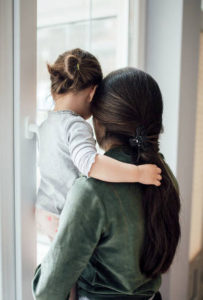
I’ve written already about the mental health toll the COVID-19 pandemic and associated management strategies, such as physical distancing, are having and will have on the population. Then I received a press release from the health information site Healthline that put some numbers to that toll, both from their internal data and from a nationwide survey from the public opinion company YouGov.
Healthline in May launched a special section on mental health during the pandemic that’s full of quick service pieces on managing anxiety, stress, depression, panic attacks and similar experiences during the pandemic. Some of these stories can provide ideas for similar pieces for your publication, or be jumping off places for deeper dives into the medical research on mental health during major crises.
It could be particularly interesting to compare studies looking at lifetime prevalence of depression, anxiety, PTSD, elevated stress or other conditions, or prevalence studies on these conditions during past natural disasters, terrorist events or epidemics, with the data Healthline and YouGov are reporting.
Healthline earlier launched a survey of its readers that also may be useful. Note that the survey population likely has some selection bias, since people reading a health information website may be more conscious of their symptoms or are going there because they are experiencing difficulties. For example, the survey found that 22% of their readers are concerned they have COVID-19 symptoms, compared to 4% of the general population. They also found that nearly 2 in 5 readers reported symptoms of moderate to severe depression. (You can read more on their methodology here.)
YouGov began its COVID-19 tracker data collection on April 2. Here are some of the findings:
- 3 in 5 Americans are afraid of getting COVID-19, according to YouGov’s sixth wave; the number hasn’t changed over the past month.
- 55% of men reported fear of contracting the virus during the survey wave ending April 20, compared to 50% two weeks earlier, based on YouGov data. Similarly, 22% of men reported anxiety on the PHQ-4 scale in the most recent wave, compared to 22% two weeks earlier.
- Among women, 64% had a fear of contracting the virus, down from 70% two weeks ago. Anxiety also dropped among women, from 34% to 27%.
- 25% of Americans are looking for information about how to deal with anxiety and stress, and 21% want help for coping with isolation.
- Among different ethnic groups, Latinos report higher rates of anxiety than others, and the percentage who are afraid of getting the virus increased from 57% two weeks ago to 64% in the survey wave ending April 20.
Potentially more interesting to journalists trying to determine what to write about are the findings about what people want to know and what they have difficulty learning:
- 38% of Americans said they want to understand how seriously they could get sick if they catch the virus. Within that group, 3 in 5 said it’s hard to find that information.
- 19% of Americans want information on caring for aging parents or children, and a similar proportion, 3 in 5, have had difficulty finding what they need.
- 14% of Americans said they don’t know who to trust in asking health questions right now, and again, nearly 3 in 5 said it’s challenging to figure that out.
Healthline intends to continue publishing ongoing findings here. For additional resources to help you report on mental health during the pandemic, check out this new AHCJ tip sheet on the topic.









